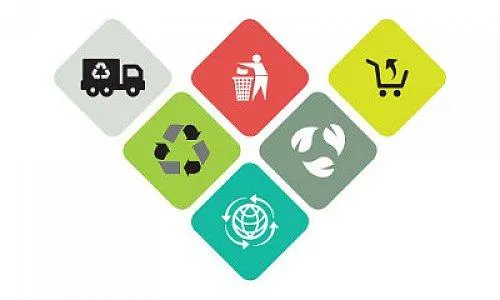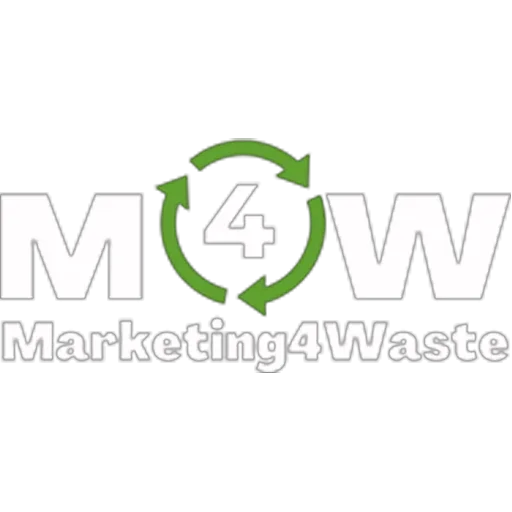Increase the Revenues of Your Waste Company With the Tips Shared in Our Blog Articles

European Waste Management Strategies for US Commercial Waste Collection
In this article, I want to show you what business strategies are used by the most successful waste management companies across Europe.
Through my research, I've identified three key business strategies that have propelled these companies to the forefront of the industry. In this article, we'll explore these strategies and discuss how they can be adapted for use in the US commercial waste collection sector.
Circular Economy Integration
The first and perhaps most impactful strategy employed by leading European waste management companies is the full integration of circular economy principles into their business models. This approach goes beyond simple recycling and focuses on creating closed-loop systems where waste is treated as a valuable resource rather than a problem to be disposed of.
One standout example is Veolia, a French multinational company that has embraced the circular economy concept wholeheartedly.
Veolia has developed innovative processes to recover and reuse materials from various waste streams, effectively turning waste into new products and energy. For instance, they've implemented advanced sorting technologies that can separate different types of plastics, allowing for higher-quality recycled materials that can be used in manufacturing new products.
Another example is Suez, which has invested heavily in developing new technologies for resource recovery. They've created specialized facilities that can extract precious metals from electronic waste, recover nutrients from organic waste for use in agriculture, and even transform non-recyclable waste into alternative fuels for industrial processes.
These companies have recognized that by viewing waste as a resource, they can create new revenue streams while reducing waste disposal's environmental impact. This approach has not only improved their bottom line but has also positioned them as leaders in environmentally responsible business practices.
Digital Transformation and Smart Waste Management
The second key strategy successful European waste management companies employ is embracing digital technologies and smart waste management systems. This digital transformation has allowed these companies to optimize their operations, reduce costs, and improve service quality.
A prime example of this strategy in action is Remondis, a German waste management company that has invested heavily in Internet of Things (IoT) technologies. They've equipped their waste containers with sensors that monitor fill levels in real time, allowing for optimized collection routes and schedules. This reduces fuel consumption and emissions and improves the efficiency of their collection operations.
Similarly, FCC Environment in the UK has implemented a comprehensive digital platform that integrates all aspects of its waste management operations. This platform includes features such as real-time tracking of collection vehicles, automated customer communication systems, and data analytics tools for predicting waste generation patterns.
By leveraging these digital technologies, these companies have provided more responsive and efficient services to their customers while reducing operational costs. The data gathered through these systems also provides valuable insights that can be used to optimize operations further and develop new services.
Partnerships and Collaboration
The third strategy that has proven successful for European waste management companies is cultivating strategic partnerships and collaborations. These partnerships span industries and sectors, allowing waste management companies to tap into new markets and develop innovative solutions.
One notable example is the partnership between Biffa, a UK-based waste management company, and Nestlé Waters UK.
This collaboration led to the development of a closed-loop recycling system for plastic bottles, where Biffa collects and recycles used plastic bottles, which Nestlé Waters then uses to produce new bottles. This partnership not only created a new revenue stream for Biffa but also helped Nestlé Waters meet its environmental goals.
Another example is the collaboration between Renewi, a waste-to-product company, and various municipalities in the Netherlands. Through these partnerships, Renewi has implemented advanced waste separation systems at the household level, significantly increasing recycling rates and reducing the amount of waste sent to landfills.
These partnerships have allowed waste management companies to expand their capabilities, access new technologies, and create more comprehensive waste management solutions. By working closely with waste producers and potential end-users of recycled materials, these companies have created more efficient and effective waste management systems.
How Can You Apply These European Strategies to US Commercial Waste Collection?
Now that we've identified these successful strategies, let's explore how they can be adapted and applied to the US commercial waste collection sector.
Embracing the Circular Economy
US waste management companies focusing on commercial waste collection can start by viewing the waste they collect as a potential resource rather than just a disposal problem. This shift in perspective can open up new opportunities for revenue generation and environmental stewardship.
To implement this strategy:
a) Invest in advanced sorting and processing technologies: By upgrading sorting facilities with technologies like optical sorters, artificial intelligence, and robotics, companies can more effectively separate different types of waste, increasing the quality and value of recovered materials.
b) Develop partnerships with manufacturers: Collaborate with companies in various industries to create closed-loop systems for specific waste streams. For example, partner with office supply companies to collect and recycle paper waste, which can then be used to produce new paper products.
c) Explore waste-to-energy opportunities: Invest in technologies that can convert non-recyclable commercial waste into energy, such as anaerobic digestion for organic waste or refuse-derived fuel production for mixed waste.
Implementing Smart Waste Management Systems
US commercial waste collection companies can significantly improve their operational efficiency and service quality by adopting smart waste management technologies.
To implement this strategy:
a) Deploy IoT sensors: Equip commercial waste containers with fill-level sensors to optimize collection routes and schedules. This can lead to significant cost savings and improved customer satisfaction.
b) Develop a comprehensive digital platform: Create an integrated system that manages all aspects of the waste collection process, from customer communication to route optimization and invoicing.
c) Utilize data analytics: Use the data collected from smart systems to predict waste generation patterns, optimize pricing strategies, and identify opportunities for new services.
Fostering Strategic Partnerships
US waste management companies can leverage partnerships to expand their capabilities and create more comprehensive waste management solutions for their commercial clients.
To implement this strategy:
a) Collaborate with technology companies: Partner with tech firms to develop innovative waste management solutions, such as AI-powered waste sorting systems or blockchain-based tracking of recycled materials.
b) Work with industry associations: Engage with industry groups to develop sector-specific waste management solutions. For example, partner with the restaurant association to create a specialized food waste collection and processing service.
c) Engage with local governments: Collaborate with municipalities to develop more effective waste management policies and infrastructure, such as implementing commercial composting programs or creating recycling incentives for businesses.
By adopting and adapting these strategies from successful European waste management companies, US commercial waste collection firms can position themselves for long-term success in an increasingly environmentally conscious business environment.
The key is to view waste not as a problem to be disposed of, but as a valuable resource that can be transformed into new products, energy, and economic opportunities.
Implementing these strategies will require significant investment in technology, infrastructure, and partnerships. However, the potential benefits – including increased revenue streams, improved operational efficiency, and enhanced environmental performance – make this a worthwhile endeavor.
As we move towards a more circular and resource-efficient economy, waste management companies that embrace these forward-thinking strategies will thrive and play a crucial role in supplying raw materials.
The alchemy of turning waste into valuable resources is the new way to think about your waste management business.
To Your Success,
Sam Barrili
The Waste Management Alchemist


© 2025 Marketing4waste - All Rights Reserved,
Marketing4Waste is a brand of MiM MarketingInterimManagers LLC
+1 801 804 5730

